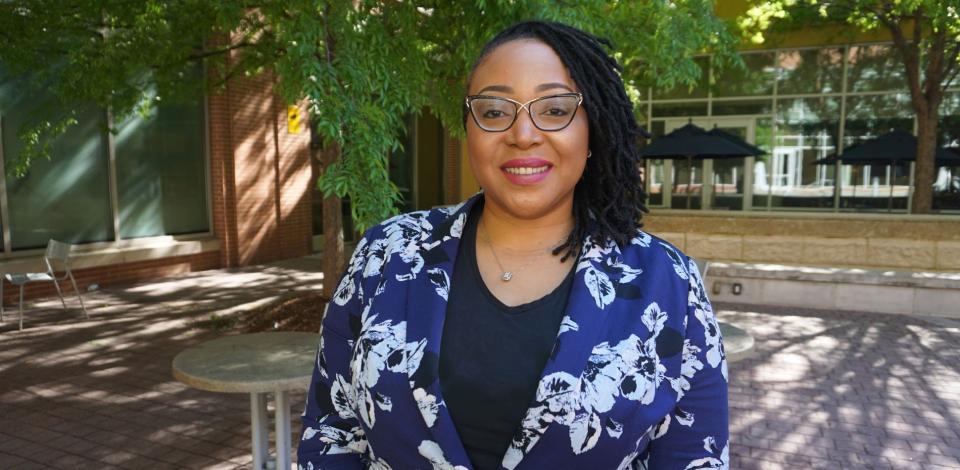Women in Construction: The OSHA Impact
In the male-dominated world of construction, Meloni Boatswain is changing the views and opportunities for women

As the founder and CEO of a construction management firm in Atlanta and the director of marketing for a safety clothing line that caters to women in the trades, Meloni Boatswain understands the importance of utilizing professional development and training to advance her career. Meloni shares her perspective on being a female safety and health professional and how Georgia Tech's Occupational Safety and Health Association (OSHA) training has helped her become a better employer, contractor, and worker.
How long have you been working in the OSH field? Can you describe your experience?
I have been in the OSH field for 15 years. I began my career in the construction industry as a carpenter working for my father. Through this position, I learned the value of safety. My father was dedicated to providing a safe working environment for his workers. After college, I became a project manager for a large residential firm in New York City, leading their construction safety planning. Looking for a change, I was offered a position in Atlanta, working as a project manager for new subdivisions in the metro area. Because of my safety background, I was asked to lead the company’s safety and health initiative and train the field crews on safe work practices. With dreams of running my own construction management firm, I obtained my Master of Business Administration with a concentration in Construction Management and started my own firm.
Why did you decide to choose Georgia Tech's OSHA Training Institute Education Center (OTIEC) for your OSH training needs?
Once I moved to Georgia from New York, I knew I wanted to attend classes at Georgia Tech to further my construction management and safety career. Georgia Tech has one of the nation’s leading safety and health programs. They are also a leader in construction education.
What have you found most valuable about the training you have received at Georgia Tech?
In my construction outreach trainer class, I was one of three women in attendance. This is very reminiscent of what women may experience on a job site. However, the instructor of the class was a woman that I had also taken safety classes with before and I knew that she was a great instructor. I found value in the breadth of knowledge and expertise that she had in construction safety. I aspire to know the OSHA standards as thoroughly as she does. I plan to continue taking safety training courses as a refresher each year and hoping to earn a Safety and Health Certification within the next two years.
What are some of the issues that you think female safety and health professionals face?
There aren’t many female safety professionals in the construction industry – in fact, there aren’t many females in the OSH industry at all. According to the Bureau of Labor Statistics, only 9% of U.S. construction workers are women. The lack of representation is one of the biggest issues. As a female safety professional, we need to identify job safety hazards specific to the demographics of the workers and the jobsites. We need to ensure that we raise these concerns to the company owners and hold them accountable to make sure they adhere to OSHA standards across the board. The construction industry is evolving, and companies are charged with staying ahead of these changes to attract and retain the skilled labor needed to complete their jobs. As the industry shifts and more women are encouraged to enter the trades, companies will no longer be able to ignore these gender disparities.
To what extent do you think OSHA training has helped you meet your career goals?
The construction industry will not thrive unless we put safety first. The training at Georgia Tech has really catapulted my career in construction and safety management. It has helped me become a better employer, contractor, and worker. When you lead with safety you understand how working any other way effects the true bottom line. Every company needs to protect their most sacred commodity – their employees. In the next five years, I would like to hire more staff and get them trained and certified through Georgia Tech to lead the firm’s projects.

